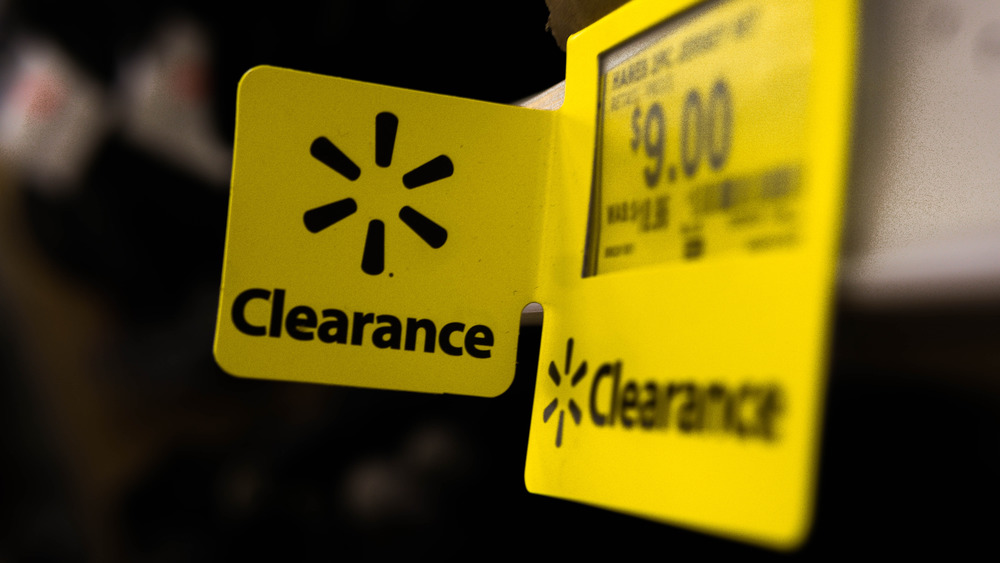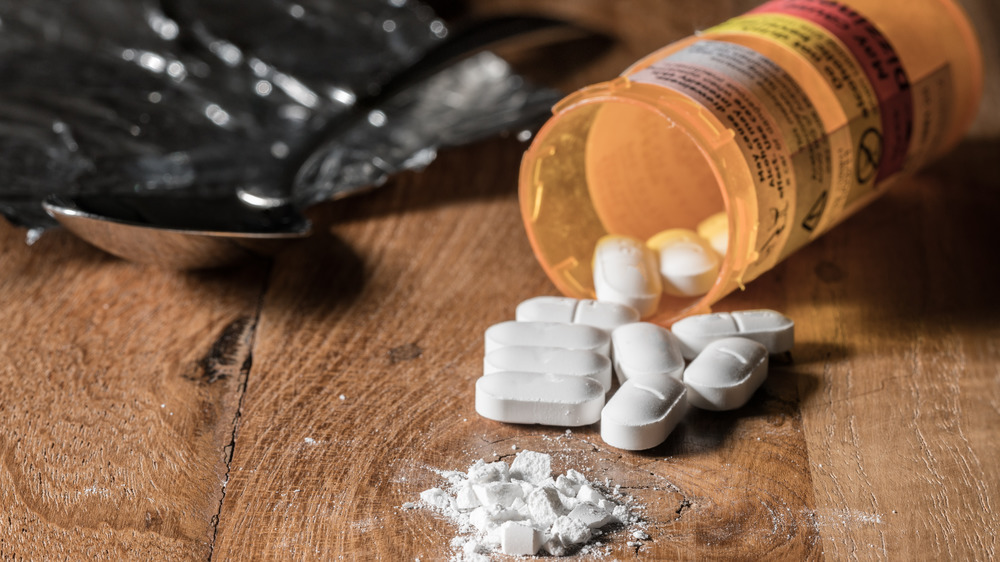The Tragic Reason The Justice Department Is Suing Walmart
Walmart is, without a doubt, a monolithic American institution. In terms of earnings, in the third quarter of 2020 alone, they amassed $134.7 billion in revenue, netting $5.14 billion of it, and raising the entire value of the company to $423.3 billion, as CNBC reports. This has occurred during the COVID-19 pandemic, mind you, where local mom-and-pop shops are dying left and right. Much of Walmart's recent financial success rests in online shopping, predictably so, which has risen 79 percent in recent months, but the company owes its overall wealth to a host of other factors, particularly its diversification of products (clothes, groceries, firearms, electronics, pharmaceuticals, you name it). Walmart is, per Strategy Business, a master of "directed opportunism," which has allowed them to acquire or merge with international businesses such as Flipkart in India, Cifra in Mexico, and Ito-Yokado in Japan, making Walmart the largest retailer in the world.
Of course, it's easy to reduce such goings on to mere greed, and peg Walmart as an evil corporate behemoth tromping on the backs of the poor. On one hand, it's true that Walmart is such a staple of regional economies in the US that without them, not only would thousands of people lose their jobs, but literally millions more might be stuck in food deserts with no access to affordable goods. On the other hand, Walmart notably exploits its overseas workers to produce said goods, per CNN Business. And recently, they've come under fire by the Justice Department itself.
Walmart is accused of fueling the opioid crisis
What is the connection between Walmart and the Justice Department? For that, we have to turn to the horrific state of the opioid crisis in the US.
Rightfully described as an "epidemic" by the Center for Disease Control (CDC), 450,000 people have died within the past 20 years from overdosing on opioids acquired illegally or via prescriptions. Since 1999, the epidemic has come in three waves: the first in the late '90s, with the rise of prescription opioids such as methadone; the second, since 2010, with the rise of heroin use (an opioid derived from morphine); and the third, since 2013, with the rise in synthetic opioids such as fentanyl. The last wave has been particularly insidious, because users have begun mixing opioids with cocaine, homemade pills, and stimulants such as methamphetamines.
At present, entire cottage industries of opioid dealing have cropped up across the US. The devastation wrought in West Virginia, in particularly, has come into the national limelight, buoyed by documentaries such as Netflix's Oscar-nominated Heroin(e). It's been suggested in studies such as those published by the National Library of Medicine that the epidemic stems in part from skyrocketing health care costs, which disallow treatment options other than pain-killing prescriptions. Those prescriptions then ironically form the foundation of circuits of re-sold opioids that make their way into the hands of addicts.
And Walmart's $19+ billion-a-year in pharmaceutical revenue, per Reuters, including $4 prescriptions? A big part of the problem.
The Justice Department already sued Purdue Pharma and won
The Justice Department's investigation into Walmart's connection to the opioid crisis began in 2016, as ABC reports, and its 160-page lawsuit has been building since then. In fact, this isn't the only pharmaceutical giant taken to heel by the Justice Department, who also sued the creators of Oxycontin, Purdue Pharma, and won. As recently as October, 2020, Purdue was ordered to pay out $8 billion for contributing to the growth of the epidemic, as the BBC says. Detractors say that the Justice Department hasn't done enough to expose the corruption within pharmaceutical operations that's led to the widespread proliferation of opioid prescriptions, but the Justice Department called the deal "significant."
Walmart knew the lawsuit was coming, and already filed a preemptive suit a couple of months ago, claiming that the Justice Department's "lawsuit invents a legal theory that unlawfully forces pharmacists to come between patients and their doctors, and is riddled with factual inaccuracies and cherry-picked documents taken out of context." On December 22, 2020, Walmart posted a finely-crafted blog entry on its corporate website defending itself in the eyes of the public. The opening line says, "Walmart is helping fight the opioid crisis... Our pharmacists have refused to fill hundreds of thousands of opioid prescriptions they thought could be problematic."
At the same time, another Walmart page dedicated to opioid information states that 21-29 percent of "patients prescribed opioids for chronic pain" misuse them, and, "2.1 million people... have an opioid use disorder."
Walmart is accused of not vetting pill mill prescribers
So what exactly is Walmart being accused of? Essentially, the lawsuit boils down to compliance issues within Walmart's dispensation of controlled substances. Without proper vetting, the suit says, Walmart fulfilled prescriptions that were completed by "pill mill" prescribers who profit off the over-prescription of drugs (which produces plenty of profit for Walmart, in turn). Walmart put "enormous pressure" on pharmacists to fill prescriptions as quickly as possible, without checking their validity. In the words of Jason Dunn, U.S. attorney general of Colorado, "Walmart knew that its distribution centers were using an inadequate system for detecting and reporting suspicious orders," and, "Walmart's pharmacies ordered opioids in a way that went essentially unmonitored and unregulated."
Walmart, to protect itself, has pointed to the sanctity of the doctor-patient relationship, and made the analogy of pharmacists as middlemen who are simply carrying out orders. Walmart has even said that they've been criticized by medical groups for being too vigilant, and "going too far in refusing to fill opioid prescriptions." Per the Wall Street Journal, Walmart has also stated, "Blaming pharmacists for not second-guessing the very doctors [the Drug Enforcement Administration] approved to prescribe opioids is a transparent attempt to shift blame from DEA's well-documented failures in keeping bad doctors from prescribing opioids in the first place."
At the same time, Walmart has also admitted that a mere 70 percent of its doctors "still have active registrations with the DEA."



